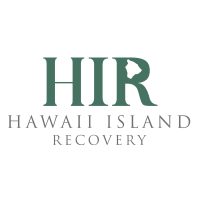ACCESS Capabilities Pahoa
Drug Rehab Center in Pahoa, Hawaii
ACCESS Capabilities Pahoa is an addiction treatment facility in Hawaii offering a variety of programs and services for individuals struggling with addiction and substance abuse, including detox, residential, and outpatient care, specialized treatment programs, individual and group therapy, medication-assisted recovery, and comprehensive, individual-centered care plans.
About ACCESS Capabilities Pahoa in Hawaii
ACCESS Capabilities Pahoa, located in the lush, tropical setting of Pahoa, Hawaii, is a renowned addiction treatment facility that has been providing quality and affordable services to individuals and families affected by substance abuse and interpersonal violence since its establishment. The center's primary focus is on utilizing proven cognitive-behavioral and humanistic approaches to help individuals make positive changes and overcome maladaptive behaviors.
• Safe, supportive environment to foster recovery
• Full continuum of care, including detox, residential, and outpatient services
• Specialized programs for opioid addiction and seamless transitions between levels of care
• Comprehensive services, including individual, group, and family therapy, crisis intervention, holistic therapies, and life skills training
ACCESS Capabilities Pahoa is accredited by the Commission on Accreditation of Rehabilitation Facilities (CARF) and holds a license from the Hawaii Department of Health. The center has also been recognized with the National Safety Council's Silver Achievement Award for its dedication to client health and safety.
The facility treats a wide range of addictions and substance abuse issues, with a particular focus on opioid addiction. Treatment methods include medication-assisted recovery services, such as Vivitrol and Suboxone, in addition to a variety of therapeutic modalities and holistic approaches. ACCESS Capabilities Pahoa offers multiple levels of care, from detox to residential and outpatient programs, ensuring a seamless transition throughout the recovery process.
Genders
Ages
Modality
Additional
Accreditations

JCAHO
Conditions and Issues Treated
Opioid addiction is when someone becomes addicted to opioids. This can happen quickly due to any opioid use. Opioid withdrawal can be uncomfortable and lead the user to continue using even if they want to quit. It’s best to receive inpatient treatment for detoxification.
Even if a person doesn’t need inpatient treatment, it’s recommended to start rehabilitation or at least some kind of outpatient treatment. This is because the withdrawal symptoms from opioids can be uncomfortable and unpleasant, to the point that a person could end up using again or worse.
Detoxification should be done to break the physical addiction of opioids. This can be done with opioid replacement therapy, medication-assisted therapy, or a more traditional detoxification program. Intensive outpatient treatment is a form of addiction care that allows patients to continue living at home while undergoing treatment. This type of care is appropriate for patients who have been treated in residential treatment programs. Intensive outpatient programs include regular visits to the facility providing therapy, and patients gradually return to their routine life. IOP benefits most when patients have a supportive family member or friend to help them recover.
The first step to getting into an intensive outpatient program is to attend a detoxification facility. Detoxification facilities are designed to remove substances from the body safely. The patient will attend sessions designed to help them understand their addiction and its impact on their lives. While in an intensive outpatient program, therapy sessions are scheduled three to five times per week, with the patient attending no more than two sessions in one day.
Dual Diagnosis therapy is considered more successful than traditional rehab methods because it treats the addiction and the underlying mental health disorder simultaneously. This comprehensive approach gives Pahoa, HI patients the best chance for long-term recovery. If the patient does not receive treatment for both conditions, they are more likely to relapse.
Levels of Care Offered
This center offers a variety of custom treatment tailored to individual recovery. Currently available are Drug Rehab, Dual-Diagnosis, Intensive Outpatient, Outpatient, with additional therapies available as listed below.
An intensive outpatient treatment program, or IOP, is set up for those struggling with an addiction to begin the recovery process. However, the patient will not live at the facility during treatment.
IOP involves patients coming in and out of a medical office building regularly to receive therapy and other services while continuing their life outside of these visits.
IOP is a step up from drug detoxification or alcohol detox. However, it’s still considered a phase of recovery rather than the ultimate goal. There are many rehabs and treatment facilities available to patients in need of IOP.
Outpatient treatment consists of counseling and therapy sessions. The outpatient treatment process begins with the addict’s initial detox period, lasting about ten days. Outpatient treatment is used for those who are at moderate risk for “slipping back” into the addiction. It is also used for those who are not currently experiencing any side effects from withdrawal, can handle social pressure, have a stable living environment, and have a good support system.
Therapies & Programs
Individual Therapy is a crucial component of addiction recovery. Therapists work with patients to identify the root of their addiction and figure out how to better handle the issues that led to them using drugs. Individual Therapy is one on one sessions where people meet with their therapist. Individual therapy provides a safe space for people to open up and discuss personal and sensitive topics which they may not feel comfortable discussing in a group setting.
In this type of therapy, therapists can develop specific solutions for each patient, which helps speed up their recovery process. In addiction recovery, therapy is a crucial part. It allows patients to go deep into their core issues and discover how those problems can be better handled now. Therapy can be performed in individual sessions as well as group settings. In individual therapy for addiction, the patient meets with the therapist one-on-one to focus on the underlying issues of addiction and come up with solutions to prevent future abuse.
Family therapy is a crucial part of drug treatment and getting sober. It is one of the most effective ways to help addicts stay on the path to long-term sobriety. One of the most important parts of family therapy is the relapse prevention plan. During treatment, therapists and doctors will often sit down with the addict and their family to develop a plan if the addict ever feels like they want to use again. This plan should involve steps the addict and family can take together to prevent them from relapsing in the future.
An addict’s family can play a vital part in helping them to avoid relapse because they can spot the warning signs and help them get back on track before it becomes too much of a problem. Family therapy is one of the most effective ways to help addicts stay on the path to long-term sobriety.
Group Therapy is employed by drug treatment centers like ACCESS Capabilities Pahoa to provide the recovering addict with a platform to talk about their feelings and experiences. It also provides for an opportunity to learn from other addicts who have successfully overcome their addiction. It is recommended that all group members be recovering addicts for this type of therapy to work.
Cognitive Behavioral Therapy (CBT) is an approach and method in psychotherapy. ACCESS Capabilities Pahoa asks people to investigate how their thoughts, including habitual, harmful, and inaccurate ways of thinking, affect behaviors. CBT is based on the idea that rigid, inflexible ways of thinking cause people to have a limited ability to cope with stress, which leads to emotional distress.
Likewise, CBT helps people identify maladaptive behaviors and replace them with more positive behaviors. It makes you look at the way you perceive something and ask: Is this a realistic belief? CBT asks people to look at the role of behaviors and emotional responses and how they may be distressing in one’s life. The goal of CBT is to change the way people think and behave to achieve a more balanced, healthier lifestyle.
Moreover, CBT has been shown to reduce some types of anxiety disorders, depression, and symptoms related to thoughts or actions that are considered harmful.
EMDR helps patients deal with past events. The ACCESS Capabilities Pahoa This method also boosts healing which calms many allowing one to feel more in control when fighting addiction. EMDR is a therapeutic method that uses hand tapping or moving visual stimuli to provide stimulus to people recounting traumatic events.
Payment Options Accepted
For specific insurance or payment methods please contact us.
Is your insurance accepted?
Ask an expert, call (888) 674-0062
Additional Details
Specifics, location, and helpful extra information.
Pahoa, Hawaii 96778 Phone Number(808) 964-1198 Meta DetailsUpdated April 15, 2024
Staff Verified
ACCESS Capabilities Pahoa Patient Reviews
There are no reviews yet. Be the first one to write one.
Pahoa, Hawaii Addiction Information
Hawaii has one of the highest rates of drug abuse in the nation. Methamphetamines and marijuana are the most common drugs involved in drug-related crimes in Hawaii. The state loses $500 million every year due to methamphetamine abuse, according to the Hawaii Meth Project. More than 1 million prescriptions for prescription drugs are given out every year.
In Pahoa, Hawaii, drug addiction is a serious concern. According to recent statistics, in 2016, there were nine deaths due to overdosing on drugs in Pahoa. Additionally, there were 119 admissions to rehab facilities for drug addiction in Pahoa that year. Most drug overdose deaths (51%) occur among people aged 35-54. Some common treatments include residential treatment, outpatient treatment, and detoxification.
Treatment in Nearby Cities
- Wahiawa, HI (242.7 mi.)
- Paauilo, HI (46.8 mi.)
- Kapaau, HI (75.5 mi.)
- Waialua, HI (251.5 mi.)
- Keaau, HI (10.5 mi.)
Centers near ACCESS Capabilities Pahoa
The facility name, logo and brand are the property and registered trademarks of ACCESS Capabilities Pahoa, and are being used for identification and informational purposes only. Use of these names, logos and brands shall not imply endorsement. RehabNow.org is not affiliated with or sponsored by ACCESS Capabilities Pahoa.









